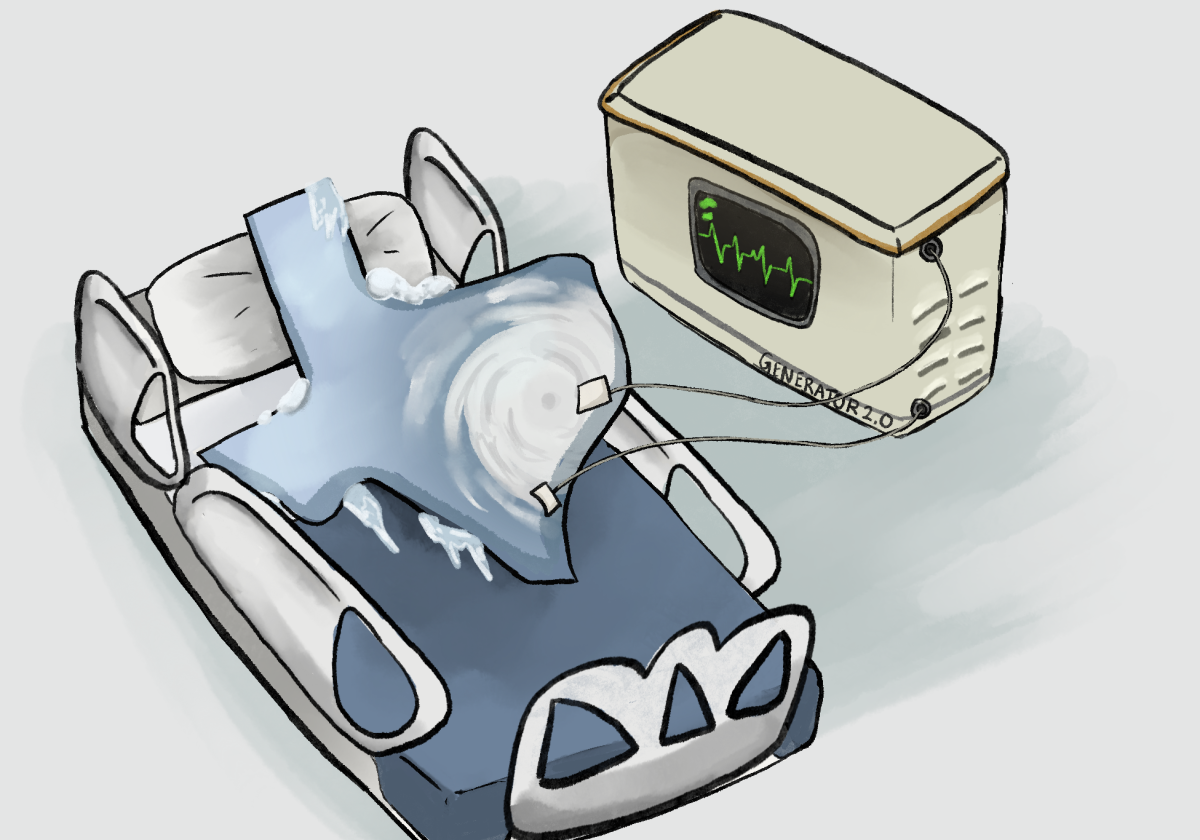Two weeks after Hurricane Beryl, the Tantuco family was still without power.
Amazingly, it was the first time their Afton Oaks home had gone without electricity, including May’s derecho and the Great Texas Freeze of 2021. Senior Alexys Tantuco assumed that the power would come back on quickly, perhaps a few days, so they stuck it out at home.
“After the first week, we were considering getting a generator because we couldn’t handle the heat anymore,” Tantuco said.
After searching three different Home Depot stores and looking online for hours, the family was out of luck. The generators were either sold out, too expensive or would ship a month later. Tantuco ended up spending the nights for a week at a friend’s house, and the family sent their pets to doggy daycare to keep them out of the heat.
The floods caused by Hurricane Harvey in 2017 was a watershed moment for Houstonians considering the purchase of a generator. According to the Houston Association of Realtors, the total number of homes sold with generators tripled from 2018 to 2023—luxury homes sold with generators increased by 600%.
This increase can be attributed to a two-fold problem: climate change and the frustration with the Texas power grid.
Global warming comes with increased rain and a higher flood risk, causing more severe thunderstorms. Increased temperatures, which make storms more powerful, result in simultaneous catastrophic weather events.
On July 9, the day after Beryl hit, the heat index rose above 100 degrees. As widespread power outages exacerbated the issue, hospitals across Greater Houston admitted more than 300 patients with heat-related illnesses. A third of Beryl-related deaths were caused by the heat.
According to Emily Foxhall (‘09), a current Knight Science Journalism Fellow, there are two choices when it comes to responding to climate change: adapt or move.
“I see generators as one form of adaptation, for the people who can afford them,” said Foxhall, who is on leave from climate reporting for the Texas Tribune. “It’s an extra layer of safety, comfort and security.”
The overall demand for whole-home generators spiked after the February 2021 freeze. After more than 800,000 Houstonians were left without power following the derecho and the 2.2 million caused by Beryl, many St. John’s community members considered the necessity of purchasing a generator.
After losing power in her Sugar Land home, junior Riya Nimmagadda, a copy editor for The Review, spent four days making paper fans and driving between her mom’s air-conditioned office building and local cafés.
Like most of the families in their neighborhood, the Nimmagaddas never considered buying a generator since their homes were elevated to accommodate flooding, so they rarely lost power.
“When you have power, you don’t realize how bad it is without electricity,” Nimmagadda said.
Because Nimmagadda’s parents are planning to move once she graduates next spring, “there’s no point in paying so much money just to have it for a year or two,” Nimmagadda said. “But if my family were to stay here for another decade, then we would definitely consider it.”
Depending on fuel type, size and brand, portable generators often range anywhere from $500 to $3200, while whole-house generators start at $9000 dollars and can soar above $25,000 for larger homes. Additional labor and maintenance costs make generators inaccessible for many homeowners.
Foxhall was left without power in her home for days after Beryl, where it is now obvious who has a generator and who does not.
“The hum of generators was a new noise that kicked up on my street,” Foxhall said. “I remember feeling jealous and wishing I could take all my food over to them to keep it cold.”
Beryl was a prime example of the inequity of climate change within Houston. While the question for some families and homeowners might be whether or not to invest in a generator, others do not have the same luxury.
To Foxhall, the ability to adapt in the event of climate crises is highly variable—whether its having transportation to get to the nearest cooling center, or having the resources to evacuate, the ability to protect oneself from the brunt of natural disasters is largely dependent on socioeconomic and geographical factors.
“Not everybody can afford a generator—part of the larger issue of climate change is that it is going to affect people differently. People will have to make do in whatever way they can.”
In order to create a comprehensive solution to the increasing severity of natural disasters, Foxhall focuses her reporting on the action that local government officials are taking.
“Heat and extreme weather can be deadly, so it is important that we watch and hold policy-makers accountable for how they support our communities when outages occur,” Foxhall said.
Eleanor Cannon, who used to teach the History, Economics and Geopolitics of Energy, says the government plays a significant role in managing the state’s energy grid and resources before natural disasters occur.
“Texas chose to create our own grid and one result has been a loss of energy reliability—consequently, now we have a low regulation of energy providers and cannot connect with other states,” Cannon said. “That in part reflects the political philosophy of the role of government and regulation.”
Cannon points out that the environmental impact of generators is important to consider before making a purchase. While generators do provide comfort and security in the case of a natural disaster, the gas emissions they produce only exacerbate the problem they aim to solve. During Beryl, Cannon’s neighborhood even sent out a notice stating that fuel generators were not designed to run continuously over multiple days.
“One of the solutions to manage the impacts of global warming is running air conditioning more, which then creates more climate issues,” Cannon said. “In the same way, if we had a storm that was exacerbated by climate issues, and we run generators that exacerbate the conditions that led to the storm, it becomes a perpetual challenge.”
Despite the cost and the effect on the environment, going without power in Houston is not an option.
“When we don’t have power, getting electricity is the only thing we are focused on,” Nimmagadda said. “It’s hard to fully consider these environmental impacts when people are suffering.”


















